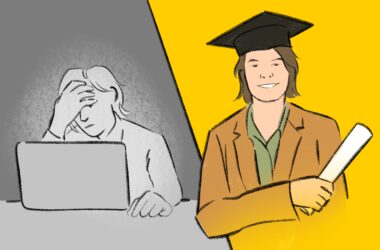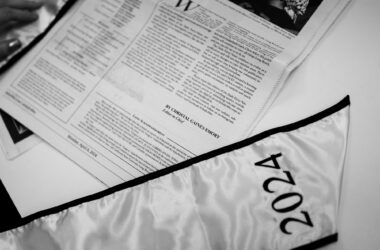Last week, George Zimmerman was acquitted of all crimes — including manslaughter and second-degree murder — in the Trayvon Martin shooting case.
Following the verdict, a large national debate about race and the controversial “stand your ground” law began in response to the jury’s decision.
While the national debate brought a great deal of media attention to the case, that same attention also influenced the due process of law.
In effect, public outcry led to the prosecution’s trying to convict Zimmerman of second-degree murder, as opposed to the lesser charge of manslaughter.
The decision to aggressively pursue the second-degree murder charge was ultimately the prosecution’s fatal error.
During the trial, prosecutors charged Zimmerman with the second-degree murder of an unarmed minor.
According to Florida law, second-degree murder is defined as “the unlawful killing of a human being, when perpetrated by any act imminently dangerous to another and evincing a depraved mind regardless of human life, although without any premeditated design to effect the death of any particular individual …”
The issue that botched the process of bringing Zimmerman to justice was the public’s view that a charge like second-degree murder be pursued, as opposed to manslaughter.
According to Florida law, manslaughter is defined as “the killing of a human being … without lawful justification.”
In reality, the prosecution should have pursued manslaughter from the start of the trial.
Focusing on the manslaughter charge would have likely increased the prosecution’s chances to convict Zimmerman.
Ultimately, a lack of credible eye witnesses present at the shooting led to Zimmerman being acquitted of all charges.
But what led to the trial in the first place?
Deeply rooted racial lines divided the debate, as some civil rights activists saw the case as a matter of race.
Evidence of the public’s interest in the case included a change.org petition created by Martin’s mother, which listed more than 2.2 million signatures calling for Zimmerman’s arrest.
A similar petition calling for the Department of Justice to open up civil rights charges against Zimmerman has gathered more than 500,000 signatures since Saturday.
Public outcry had as much of a hand in justice as the judicial process itself did.
While the trial did not specifically answer the question of whether race was a factor in Martin’s death, Zimmerman’s account of what happened paired with the evidence presented in the case showed that he was not in a depraved state of mind.
While it can be argued that the prosecution did a terrible job of painting Zimmerman as a depraved individual, it could also be argued that some media outlets did a better job in painting Zimmerman as a murderer before the trial began.
Public sentiment wanted to create justice out of the Zimmerman case, rather than seek it.
Public outcry influenced prosecutors into pursuing a more heinous crime like second-degree murder.
Instead of minimzing the hype, the public’s zeal in seeking retribution without a clinical understanding of the facts led to Zimmerman walking free.
Nicolas Rodriguez is a senior political science major and an assistant opinions editor at the Daily 49er.



